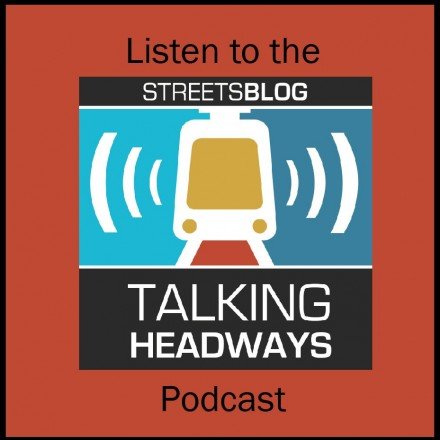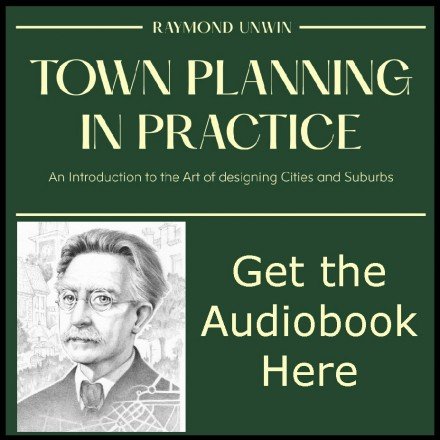(Unedited) Podcast Transcript 336: More Highways, More Driving
This week we’re joined by Ben Holland, Senior Associate at the Rocky Mountain Institute to talk about important strategies for reducing emissions in the transportation and land use sectors. We talk about the disconnect between techno-optimists and urbanists in climate change approach, RMI’s new Colorado induced travel calculator, and the hard choices regions have on transportation and development.
Below is a full (unedited for now) transcript:
Jeff Wood (1m 44s) Well, Ben Holland, welcome to the Talking Headways Podcast.
Ben Holland (1m 51s): Thanks for having me, Jeff, a big fan of it.
Jeff Wood (1m 54s): Thanks for coming on in the show. We’ve known each other for quite a while. For those that don’t know you though, can you tell us a little bit about
Ben Holland (1m 59s): Yourself? I work at Rocky mountain Institute or a should call it RMI. Now we just went through kind of a rebranding, just a little bit of background on are my we or in an energy and a climate focused or nonprofit founded by Ann Marie and hunter. Levin’s about 40 years ago here in Colorado, but very much a global in reach now. And a, the bulk of our work is really focused on identifying and implementing a zero carbon solutions, kind of the most energy intensive sectors. So those being buildings, electricity transportation in the industrial sector, and I work on transmission.
Jeff Wood (2m 36s): And then how did you get into transportation? Like what was the introduction for you
Ben Holland (2m 40s): Fell into it? Honestly? So I’ve worked at RMI twice. The first stent really starting back in 2009. And I came on board on the communications team. I had moved here to Boulder, Colorado from Richmond, Virginia, and we’re kind of on communications marketing for awhile, but just sort of found that I gravitated toward the transportation work. I had a colleague named Matt Matilda who brought me on board, the transportation team, basically to help manage a, a, an initiative called project get ready, which was focused on helping cities. This was at the outset of the electric vehicle market, but helping cities kind of prepare for and early adoption of electric vehicles, much of my foot work now is focused on kind of non electric vehicle transportation strategies.
Jeff Wood (3m 22s): Did you know though, when you were younger, that cities were important that they were interesting that they had some sort of pull?
Ben Holland (3m 29s): Yeah, I don’t think I really placed it or thought about it so much until we had an initiative down in Austin that I can talk about it a little bit, but you know, I lived in a part of Richmond called the fan, which surrounds the university there, but Virginia Commonwealth university, and it’s in many ways kind of, you’re a classic urbanist environment. You’ve got a mix of a six plexes and a single family, detached homes, row houses, corner stores and things of that nature. And when I moved to Boulder, I don’t think it really connected with me on, honestly, I think I thought that sort of urban form, the low rise cottagey feel of Boulder was sort of an organic thing rather than zoned that way.
It didn’t really Dawn on me. I didn’t really, it didn’t really connect with me until I started working with the Congress for the new urbanisms central Texas chapter and a tail barn stone down there, and some of his colleagues, as well as the other sort of urbanist and Yambi groups down in Austin and actually started listening to your podcast or a bunch. So that’s over the last three years or so is when I would say it became kind of, of urbanism convert, I mean, on simplifying it. But most of my mind in the environmental space was really focused on technology solutions.
And I just really kind of having been introduced to CNU. I was able to better understand what it was that I loved about Richmond and it dawned on me how difficult it is for cities to embrace that kind of urban form. So that’s, that’s sort of, what’s been interesting in MI for the last few years. What’s your take on Boulder? Yeah. So I’m a motto and the board of a, of an organization called better Boulder. I don’t know if you’ve read golden gates by condo or date, but he features it in the first chapter, I think, cause it was the week initiated.
I believe the first YIMBY conference I was living in Austin at the time much of our work is focused on housing advocacy. And to some extent, transportation advocacy as well, Boulder is obviously very M homogenous town and also ostensively a very progressive and environmentalist town. And it’s not until the last few years of working on cities, urbanism and the transportation policy and housing policy that we’ve started to realize some of the hypocrisy to some extent of your classic environmental Boulder.
Right. So, which is to say that we have a lot of work to do, I think, to be more accommodating and inclusive in the city to embrace more forward thinking housing policies. So that’s what we’re working toward on a better Boulder.
Jeff Wood (5m 56s): It’s interesting. The O’Connor actually the last person we had in the studio before or the pandemic started. And so I remember actually kind of elbow bumping him on his way out cause we knew something was going on, but, and then everything kind of shut down. And so the book was really good and I hope folks get, if they didn’t get a chance to listen to the episode, they go get a chance to read the book because it’s pretty powerful in a discussion of housing issues on what’s going on or around the country, even though it, it mostly talks about Calvin.
Ben Holland (6m 23s): Yeah, well, he also wrote a really great peace for the New York times of, without Boulder. So we, during that better Boulder will during the EMB conference, he came out to report on it from what I understand and while he was here, he did a fair amount of interviews and he wrote this whole piece about, in a sense kind of M the hypocrisy of environmental movement in Boulder and the sort of exclusionary zoning policy. So it’s a pretty interesting piece,
Jeff Wood (6m 50s): But the environmental movement more broadly, you know, we have this climate change Spectre looming above us, all of the discussion about, you know, focusing on reducing emissions, making sure the, the, the ice sheets don’t melt, sea level rise, all those things. And I think there’s an internal struggle going on between folks that think that we need better technology and folks that think we need a land use change. I’m curious what you’ve seen from the kind of back and forth inside the environmental community, even if it’s not out there in the world as a kind of a larger discussion.
Ben Holland (7m 22s): Yeah. So I think come kind of have a single issue, a person on this and, or like I had a singular mission, I think, around trying to bridge those silos of the kind of tried and true transportation policy, world transportation advocacy. And again, I’m talking about things in terms of transportation, let’s call it like just good policy. And also on the other side, very much the technocratic techno economic centered, I guess, climate advocacy crowd. So, you know, you have, the technology will save the world or from climate change, how but has what I’ve recognized within the climate community.
That focus is very understandable. We do need, for instance, a great deal of electric vehicles on the road by 2030. And I can get into that target here on a little bit. We do need those steel carbon technologies, but I fear. And actually I think it’s becoming more M universally understood with our other peers and the environmental space that focus on technology has been at the cost of some of the really good policies that we needed, like equitable policies that we need to see put into place.
So just a, you know, prioritizing transit rebalancing are priorities in all of our transportation investments in particular highway investments and enabling people to have greater access to alternative. So the single occupancy vehicle. So I feel like that those two worlds is still somewhat disconnected and trying to kind of build this United coalition of environmental organizations to elevate the importance of a comprehensive vision for transportation climate. And I think it’s starting to gain a little steam.
Jeff Wood (8m 60s): Do you think the technologists understand the land use transportation connection or is it kind of not understood because if it’s a little bit of their wheelhouse typically,
Ben Holland (9m 10s): I think it’s generally not well understood. I think it’s given very little attention to, and if it is somewhat understood, there’s a sentiment within the community that, and I understand this as well, but that we don’t have enough time to improve the connection between land use and transportation, for instance, reform our zoning to allow more in Phil and mixed use development. You know, we need technologies that scale fast and scale, you know, the word scale is used quite often.
Jeff Wood (9m 40s): Some Silicon valley,
Ben Holland (9m 42s): I think climate space is very much adopted the Silicon valley ethos in some ways, but that’s another thing that we’re trying to push back on to some extent is this sentiment that it’s too hard to accomplish those things and it takes too long to achieve well. What about the
Jeff Wood (9m 57s): Language? I mean, so it’s interesting, you know, there was a news report the other night talking about here in California, Redwood trees are really good for bringing in carbon and storing it basically in their wood. And then there’s a discussion about, you know, building a huge growth of, of Redwood trees off the coast and allowing them to grow, allowing them to sequester carbon. And the language is really interesting that, you know, they are talking about taking a three and a half a million cars off the road. And it’s like, why are we trying to plant trees to equate taking cars off the road when we can just take cars off the road?
There’s always this weird language that’s happening. I think people innately understand that you need to reduce emissions through transportation, but they always want to do it another way. That doesn’t mean that they maybe have to reduce some of their trips.
Ben Holland (10m 41s): Yeah. I mean, I would say, first of all, too, like why don’t we try to stop building into the urban wild-land interface, whatever we wanna call it. Like its kind of interesting that we’re talking about planting redwoods at a time that like development is encroaching into those spaces even more. And we’re not an environmentalist are doing very little to, I think stop that. But yeah, as far as taking the vehicles off the road and I’m with you on that, that’s one of the challenges I think from a messaging standpoint that I’m struggling with and then some of our peers are struggling with is how to communicate, what needs to be done in transportation climate.
We run the risk some times of saying, you know, we’re going to take your cars away from you or are we want you to drive less even though we do. But rather I think it’s important to reframe it as and context if the access. So yeah, I think that there’s this sort of cognitive disconnect and a lot of ways that I feel like it’s breaking down a bit.
Jeff Wood (11m 34s): Yeah. You might notice that. I’m very careful with my words and saying that I’m not trying to take away your car. I don’t think that that’s a reasonable outcome and I do believe electrification is important, but at the same time, I think there’s a potential to reduce trips. You know, one of the things that I’ve seen lately is that, you know, we can do so much through electrification, but then you get that last 25%. And I think this was in a, actually a Colorado public radio report that came out yesterday talking about the sea dots, expansion of freeways in the state of Colorado. And you know, thinking about, you know, you can do so much through electrification through trying to now expand freeways, but that lasts kind of 25%.
That last bit you really do need to reduce people’s trips, try to make sure that you reduce VMT. And I think they understand that innately, but then at the same time, and it seems like they’re still trying to expand freeways, which is this weird, another weird cognitive dissonance thing that’s going on?
Ben Holland (12m 23s): Yeah. So a big part of our work at RMI now on the urban transformation team that I’m on is really focused on that DMT reduction part of the problem. And you know, the first step to reducing BMT is to stop increasing it. And that’s why we’d kind of taken a stance on and do is travel through highway expansions. And I guess I should step back a little bit, cause I haven’t mentioned this yet, but our organization recently aligned like a lot of other environmental organizations has lined around the IPCCs a carbon budget of 1.5 degrees Celsius on basically limiting global warming to 1.5 degrees Celsius by 2030.
And we’ve kind of narrowed that down to the U S where it’s a 50% reduction carbon emissions, which has in keeping with a Joe Biden’s in D C and within transportation or a analysis suggests that to hit those targets by 2030, we would need to see a ton of electric vehicles on the road based basically 70 million EVs on the road by 2030. And even under that very ambitious and optimistic scenario, we would still need to reduce vehicle miles traveled by 20% per capita is what we’ve found.
And yeah, it’s that 20% that I’m really focused on. I found the, you know, when you mentioned the 70 million EVs to a lot of people in the space, there is this enthusiasm about a, there’s no lack of optimism about it. Like, you know, this is a moonshot we’re going to hit that. No problem. The BMT reduction piece falls on deaf ears a lot of times, and just doesn’t seem very compelling to a, to some of, of the audience’s we’ve talked to it, but again, I feel like we’re making ground or gaining ground, I should say, going back to the sea dot are the Colorado discussion.
You know, we were looking at the work that UC Davis has done on their induce demand. Calculator of our work is very much to sort of an adaptation of that. So we got on the phone with Jamie Volcker and Susan handy, as well as some of our other partners in RDC and sweep and decided to expand that to Colorado. And we did not anticipate a, the reaction that we got, but for the most part, I think it’s been pretty positive. We’ve had some very positive discussions with see Don and we’re looking forward to sort of exchanging notes on our respective modeling going forward.
And the coming months we’ll be producing a national scope, 50 state induced demand calculator and potentially doing some more kind of targeted outreach and advocacy in a specific states. Yeah.
Jeff Wood (14m 45s): Can you talk a little bit more about the emissions calculator? You did this work with a Zach Subin and Laney Roland, and I’m curious kind of how you came up with it and you mentioned Susan handy, how you came up with it and you know, kind of, you mentioned some of the reactions to it. I’m curious what the reactions have been so far and positive and negative. Yeah.
Ben Holland (15m 2s): So Zach and Lanie would be a much better explaining that than me, but basically just put it simply, there’s a sort of a robust set of literature that suggests that the benefits of highway expansions are short-lived on the elder or five years or so. And then ultimately congestion where we’re turning all kinds of congestion mitigation efforts eventually and in more congestion and looking at sort of a landscape literature and real sorta evidence-based research on the numbers of kind of on an average look like for every 1% increase of lane miles, you should expect ultimately a 1% increase in VMT.
So we looked at all the different projects in a better under consideration and in Colorado is a transportation plan and found that if all of the expansions go through, we should anticipate between a two to 3% increase in VMT on Colorado highways. This comes at a time when, you know, Colorado is one of five or six states that think that actually have of BMT reduction goal. And their goal is a 10% reduction in the BMT. So can be a very difficult to achieve that by 2030, if you are also fast or expanding a lot of ways, there’s also this issue of better understanding what the impacts are of travel mitigation strategies like high occupancy toll lanes or managed lanes basically.
And to see the dots credit, they do have plans to implement the managed lanes, however, and the research that we’ve done and that UC Davis has done, there’s sort of scan evidence that it has a material reduction in BMT if you are expanding on the highway to put the managed lane. And so I think as far as our perspective goes, we don’t see any reason why we shouldn’t use managed lanes on the existing infrastructure. I mean, certainly there is a congestion benefit there and a behavioral change benefit of moving more people to the trans or potentially if, you know, you have a BAS priority lane and a managed lane, but if you are expanding the highway to create the managed lane and it’s possible that it will be a wash,
Jeff Wood (17m 8s): What’s been the reaction though. I’m curious to hear kind of the positive and the negatives as well.
Ben Holland (17m 13s): A very quickly, we got a response from the local media, you know, Colorado public radio just published their piece yesterday. That was at the AF after I think two or three weeks that Nate miner was interviewing people and did pretty thorough research for the article. Before that we had a couple, you know, I would say it was a mixed bag, some skepticism around, you know, whether or not induced man was real. But then, you know, Streetsblog wrote a great piece about the benefits of this calculator. And then we’re pretty excited to see that as far as the state of Colorado, Colorado energy office and see dot, you know, they are, I think understandably of the felt a bit taken aback by it.
And we we’ve always had a fairly strong working relationship, especially at Colorado energy office on CD doc. And we will go in forward, you know, we’re really close with we’ll tour over the Colorado energy office. Ya know, I think a lot from my perspective, it’s started a very necessary conversation that we hope we can help elevate nationally. So a better understanding and modeling the impacts of our transportation investments. It, it, I think there’s a general belief and the concept of induced demand. However, our observation is that it gets insufficiently built into kind of traditional travel demand models and VOT models out there.
Jeff Wood (18m 30s): Yeah. One of the other things in that, in the article that I thought was interesting is that they’re trying to rely on large companies to do more carpooling vanpooling transit passes and less single occupancy vehicles redo kind of like a TDM type of program. And then they also have of these carbon budgets, which was really interesting to read about too. I thought that was interesting that they have a total carbon budget for how much they can build. You would think that that would limit the amount of building they would do rather than repair. But it seems like, you know, there’s still some expansion plans going on and the next 10 years.
Ben Holland (18m 60s): Yeah. And that’s promising, but we need to make sure that that carbon budget is applied to the existing planned projects and that we kind of hold their feet to the fire on that one. There’s definitely a reason to be optimistic about their plans. We definitely want to applaud them for, you know, again, they’re considering managed lanes. They’ve also referenced micro transit mobility hubs, as you said, TDM programs, these are all great things, but I think they also suffer from the larger problem that we have in modeling carbon emissions associated with transportation is that they’re are actually not modeled.
We have a problem with a lack of data on, or, you know, for instance, what would the VMT reduction potential B or a carbon emissions reduction potential of a micro transit last mile fleet? Like no one really knows. And likewise, I think for a lot of other great things, we need to get a lot clearer on what the benefits are because as long as there’s the kind of a murky territory around understanding what the impacts are, the policy makers are always going to come out of default too. The sort of easy solution, which has been by 2050, all of our cars will be electric or, you know, and, and again, there’s this unwavering optimism that that will happen.
I mean, my stance on it is okay, let’s, let’s make sure that it happens, but in the meantime, let’s stop the blood from letting and basically when it comes to a BMT increasing across our roads and let’s start prioritizing the transportation investments that we know not only reduce emissions, but giving the people greater access to mobility.
Jeff Wood (20m 36s): I think one of the most frustrating things for me with is the lack of discussion about particulates. You know, even if you take out the gasoline portion of the fuel, there’s still a rubber tire particles, there’s still a brake dust. There’s still other things that can contribute to childhood asthma and other things that we’ve talked about many times on the show. I understand people have to get around and, and I drive on, I need to, I don’t have a car, but it’s necessary. And a lot of places in the United States, but we’re not talking about some of these other things that I think are also important as it pertains to not just, you know, reducing climate change effects, but also, you know, the health affects that highways and a single occupancy a transportation have on neighborhoods.
Ben Holland (21m 18s): Yeah. I agree. I think that has not been given sufficient attention. I know there’s kind of a raging debate over what the contribution is of tires and brakes and, you know, road re suspension, I guess, or kicking off the road dust, I guess, but, and you may know this better than me, but it’s, it seems like we can sort of chilly expect that it’s going to be for PM 2.5 and Tim a bad thing, but like half of the particulates are associated with non-exhaustive. So yeah, that’s a major problem to, I also heard recently and which might be a common sense to a lot of people, but tire wear is a significant portion of ocean pollution and just yeah.
Particles and the ocean
Jeff Wood (21m 60s): Research here in the bay area that said, you know, how many billions of particles of rubber tire pollution is in the bay? That’s what I can imagine that goes into the oceans as well. And we have a huge plastics problem, but generally from not just a rubber tires, but everything else, you know, water bottles and things like that, get into the ocean, into the water systems. And, you know, its hard to filter all of that stuff out. Even if you have a really great filtration system and that causes its own problems related to, you know, getting stuck and people’s, you know, the digestive tracks and things like that.
So definitely problems all around related to that.
Ben Holland (22m 35s): You know, as we’re talking about this, I’m just conscious of the fact that no, one of the things that are still kind of struggle with is that there’s always this sort of rebuttal to the other argument, you know, and some more urbanist side of things will argue that electric vehicles don’t solve that problem. Certainly they don’t fully. And then likewise, the electric vehicle crowd will argue that our solutions take too much time to achieve, you know, we’re and in many ways kind of talking out each other the best. And I guess the best example of that is just urbanism on Twitter, you know, which I love.
And I mean, I’ve probably gotten pulled into it more than I should, but you know, you know, you’ve got like Matthew Lewis and a lot of other, very vocal people on Twitter are just absolutely adore. You know, there’s a kind of waging sort of a battle in some ways to elevate the importance of these things. But we also probably need to, we need a pull together more of a comprehensive partnership or collaboration with a both sides of the issue. And I mean, you know, for instance, and I don’t wanna like rag on the, the, the advocacy crowd cause that came from that space.
But you know, the benefits of deploying sort of DC fast chargers along highway corridors are not worth like the detriment of expanding those highways. I’ve kind of seen that at times, his willingness to get on board with very carbon intensive highway expansion, like autocentric transportation policies, as long as we get these very small wins, from my perspective that comes up quite a bit like the charging infrastructure is of course extremely important and very much needed to enable widespread adoption of electric vehicles.
However, it is not necessarily a metric for success in the battle against climate change, especially when compared to some of the more egregious things that are happening within our transportation system.
Jeff Wood (24m 26s): Yeah. I think also, you know, I don’t want to push it on DVD advocates too much. I don’t think that that’s really necessary, but there is this inertia related to, you know, the existing system of being able to just kind of sprawl everywhere and keep them that kind of, and inertia going on that system going, which also affects a lot of other wildlife things, biomass diversity of plants and animals, those types of things, the wildlife corridors. And so that’s another frustrating part is that yeah, I mean, you know, if we had all of San Francisco electrified and through their buses and through the trains and through automobiles and Uber’s and Lyft’s and whatever else, scooters transportation at all, it wouldn’t even be that big of a, a, an issue because we’re already contained and the seven by seven mile area.
But then when you get outside, you have these, all of these areas that would be developed by, you know, sprawl development. And we need these housing. You have this huge housing needs that in a place like Austin, you know, the reason why the prices are going up really high now is the same situations having a California and many, many years ago. But you have an escape valve kind of in the suburbs, you have round rock, you have Hayes county, you have all of these places where housing is expanding at the same incredible clip. And so the reason why Austin hasn’t hit San Francisco prices yet is because you have a little bit of an escape valve, but if you cut off that escape valve and you can’t develop on the core because you have a bunch of NIMBYs, then you have a bigger problem in all of this stuff creates an environmental problem too.
So it’s not just the cars and it’s not just the transportation system overall, it’s this kind of ecology of everything it feels like to me.
Ben Holland (26m 3s): Yeah. Agreed. And you know, I mean, I love talking about Allison because I spent about two or three years there for RMS project down there. And I think it’s the perfect example. You know, if some of the challenges we face, the leadership is a very much environmentally oriented, much of the M sort of liberal progressive environmentalist council members and leaders of the past few years really came up in one of, of those sort of a well known environmental campaigns in the history of Austin, which you’ll be very familiar with, which is save are Springs.
And they well-intentioned people all around Austin. The interests me basically because M you know, you do have this very progressive city, government, and a progressive populous for the most part, but major challenges with land use this, the whole reason why I came into this space, I basically learned about land use housing, zoning, urban transportation policy. It has the city of Austin, the local advocates were battling out over code next, which would have been a comprehensive rewrite of the land development code hasn’t been updated since 1983 or four of you probably know a 70 something.
Oh, really?
Jeff Wood (27m 16s): Okay. Thanks even further back. Yeah.
Ben Holland (27m 19s): And the more interesting now with the recent passing of a, the, the, the referendum for the transit expansion, so $7 billion funded through a property tax increase that will dramatically expand the light rail system in Austin, I think is also going to force the issue of our land use policies or Austin or a land use strategy, or I guess,
Jeff Wood (27m 40s): And, you know, to be fair, I think to everybody who’s in these situations, there’s, you’re, you’re kind of a damned if you do damned, if you don’t type of thing, you have many different pressures, including gentrification displacement, east Austin is a big example of that. You have fears of losing community, which is a really important part of, of what Austin actually re you know, is and remains, but making people move further and further away from the core to get a more affordable housing, that’s a, a, another inequitable, a situation as well, making people drive so far to get to the places where they need to go.
So it’s frustrating on all fronts, I think for everybody. And if we’re going to be fair, we can’t just put the blame on, on one group and there’s gotta be some sort of a grand bargain to make sure that everybody kind of gets what they need out of the deal without sacrificing the environment.
Ben Holland (28m 29s): And then I struggled with a bit too is, I mean, I think it’s important to your first of all of not shame in the opposition, if you wanna call it that the base. And most importantly, it’s important to have empathy, especially as you’re waiting to the conversations of housing, inequity, and transportation and zoning, you know, again, being here in Boulder, it’s a very kind of like, it’s like a little Hamlet in a way of single family zoning to tap zoning. And I don’t think that’s the case that the only ones trying to maintain that zoning, or, you know, highly affluent owner’s of single family homes like McMansions or whatever you want to call them here in Boulder.
I think there is a sentiment even with younger people, even with renters, because maybe they don’t really understand that sort of an engineer that way, but there’s a very understandable fear of eradicating, you know, the look and feel of your neighborhood, you know, and that obviously has a problematic history and concepts of like community character. But it’s important, I think, to understand like where people are coming from in Austin. I mean, you’ve got these older neighborhoods, it’s an interesting place because you have a very tightly compact downtown that is surrounded, like within two minute walking distance by low slung, kind of low density neighborhoods, like Zilker park neighborhood, Travis Heights, Clarksville, those kinds of places.
It’s understandable. There’s been kind of a battle wage there.
Jeff Wood (30m 1s): Yeah. Yeah. Okay. Let’s go in a different direction. Now I want to talk about where does green infrastructure in natural systems? I think we talked about this just kind of briefly, but where does that fit into all of this discussion?
Ben Holland (30m 13s): I should mention. I didn’t really give it a good enough explanation, but we have this new team called the urban transformation team that kind of brings to bear all the different disciplines and expertise within the energy sector into kind of a city context. So I think I mentioned this earlier, but it’s the first time that we’ve had a, a true kind of city focused program. And that will include a lot of the work that I’m doing around BMT reduction transportation, but we’re also starting to build up a practice a within that team or a dedicated nature based solutions.
One of my colleagues, Julia Mizel was leading that it’s an area where we need to produce a little more evidence and data around the benefits of things like wetlands restoration, you know, green roofs, green infrastructure, instead of gray infrastructure. Because again, I think like policy makers, aren’t really armed with a, like a data-driven defensible argument. I mean, we know these are good things, but I think it’s worth the sort of intellectual exercise of really putting some numbers down what, what we can achieve from water retention reduction in the urban heat island effect and those kinds of things.
But I’m certainly not an expert in the space.
Jeff Wood (31m 26s): Yeah. I’m super interested in it just because I don’t know a lot about it, but also it’s, this seems like a really good way to preserve nature all together. And I think your point about getting the data is, is really well founded. You probably need to know how much, you know, acre feet of water that can be preserved by filtration through a meadow and how big of that meadow creates how much water filtration that doesn’t need to be done through greywater, you know, concrete solutions and things like that. So if we can get those numbers and maybe somebody has already started that, and we just don’t know about it, there’s, there’s always people doing stuff that’s really fascinating that I have just not read about or don’t know about.
So there’s probably somebody out there doing it, but I need to learn more so we can kind of figure out how to, if we can monetize everything else and the world, we should be able to monetize, or at least figure out how to save, you know, the environment in that way. Maybe we can create a futures market for forests or something like that. I don’t know. Maybe that’s something maybe that already exists for wood. That’s gone skyrocketing lately, but yeah. Okay. Last question for you. What do you think of the American jobs plan and what the focus is on each kind of section?
What do you think about it? What do I think about it? And right now I’m frustrated by the lack of movement and the, the appeal to try to be politically bipartisan instead of voter a bipartisan, which, or if something super popular with 60 something percent of the people. I think that, that sounds bi-partisan to me. So I’m frustrated with the way Washington works and the way that the constitution set up rural areas to have more power than urban areas.
Ben Holland (33m 2s): Yeah. I mean, I also had the similar frustration with the political aspects of this. I would say. I mean, I’m very pleased with how many of the elements in there are particularly around transportation. And I would say at the federal level that people that president Biden has put into or put into his cabinet and the transportation department across the board and the climate space as well have full faith and confidence in that leadership. And of course it is infrastructure bill. We’re really excited about the potential of it. But I do have concerns about just the status quo, a funding, for instance, again, on transportation or a great deal of that funding going to a more rural road project rather than a local governments.
And that is one of the things that, again, we’re kind of new in this space. We’re trying to partner with as many organizations as possible because we recognize are limited understanding of some of the politics of this, but we really wanna help elevate city’s in the climate strategy and get more funding to the cities rather than a getting gobbled up by state DOD is to do rural highway expansions.
Jeff Wood (34m 5s): I think I mentioned this in a newsletter this morning, but we’ve been doing 80 years of road building and focusing on investments that aren’t necessarily active transportation. And so it’s just frustrating to see kind of the status quo. People hope for some different outcome when still continuing the same during the same things over and over again, you know, and I S I see the investment in EVs as a good investment, but at the same time, it’s still an investment in, you know, roads and sprawl to me in that same kind of land use paradigm. And so I think that’s, what’s frustrating to me is that you can put in a bunch of transit money, but it’s never going to, unless you can reverse that 80, 20 split, you’re never really going to get back to a place where we’re investing more in transportation that moves a lot of people versus a transportation that moves, you know, a single occupant vehicle.
So, you know, there’s a lot of work to be done to go push back on 80 years of, of investment on the other side. And if we keep on the kind of incrementally slowly investing in transit versus roads, I think that we’re still gonna lose out in the end.
Ben Holland (35m 8s): Yeah. And I mean, you know, I, I typically just defer to Beth Osborne on a lot of these things, especially the 80 20 split. And also, you know, one of the things that we’re trying to push within our network of climate peers, its just the importance of the basic performance measures. So re-institute on greenhouse gas as a performance measure for transportation projects and doing that as soon as possible because you know, we have limited time to really make a difference on that. So hopefully that’s going to make it through the infrastructure bill or to the reauthorization and the fast act of it’s a, one of the things that I’m the division for infrastructure that was pretty exciting to us.
It’s just this concept of housing and like especially the infill housing as the infrastructure is first kinda came up in a president Biden’s climate plan when he was still a candidate for president where I think for the first time you saw housing elevated as a climate solution and fill housing and zoning reform, you know, the president Obama on released just sort of a equitable housing toolkit. I think it was called something like that right before he exited office. We really haven’t seen that level of support from the Democrats that in the, the inclusion of that concept of rental housing adds that either a climate tool or an infrastructure tool before.
So kind of excited about that too.
Jeff Wood (36m 25s): Yeah. I’d like to see what happens with that. Well, Ben Holland, thank you for joining us. We really, really appreciate it.
Ben Holland
Thanks for having me, Jeff










